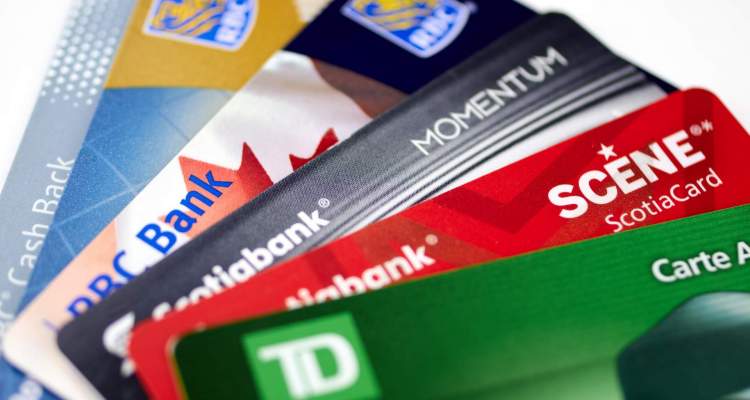
Do you know your credit card facts?
With 73 million MasterCard and Visa’s in the wallets of Canadian consumers – I believe the more we know about these little plastic cards, the better. Did you know, the highest sales volume day, for Visa and MasterCard is Dec 23?
Credit Card fees are negotiable – You may be paying up to $120.00 a year or more as an annual fee per credit card depending on the credit grantor and the type of card you are carrying. You may also be subject to finance and interest charges of over 23 percent or higher.
However, if you are a “good” customer, (in other words you pay your account on time each month) the creditor may be willing to drop the annual fee and reduce the interest rate – All you have to do is ask! If the creditor refuses you may want to consider getting a new credit card with another company. There are plenty of cards to choose from.
Credit card benefits are not all the same and some cards have eliminated their benefits – Many creditors will offer extras if you “sign” with them – benefits such as travel miles, travel discounts, insurance protection, and lifetime warranties, among other things. Now some creditors have cut back or eliminated their so-called benefits without all the fanfare that launched them. So you may not be entitled to all those extras after all. Read the mail sent from your creditors – they are obligated to tell you they have stopped providing such extras so read your mail and switch cards if you are not happy with the changes. You are, after all the customer!
Minimum monthly payments are not all the same – Paying only 2% or 3% of your monthly balance may seem like a good deal to some. But, I can assure you it is not. The creditor stands to make far more money from the interest charges the longer you carry a balance – and of course, they are happy to let you just make minimum payments.
However, some creditors do require that 5% of the balance owing to be paid as a monthly payment – but more and more creditors are dropping that required monthly payment to 2% – 3% of the balance owing because the balances that are being carried month to month on consumer credit cards is rising.
Always pay more than you charge each month and try to pay off the balance of the account as soon as possible in order to avoid paying any interest charges.
Low introduction interest rate cards are a good deal, only – if you plan to carry a balance from month to month. Low-interest rates are a come-on, just to get you to sign up. Once the “introduction” period has expired your balance will be subject to the regular interest rates and if by chance you have not closed and cancelled your old credit card – You may have charged it up again and be even deeper in debt. So be careful – Regardless, the best deal of all is still to pay CASH! – Work from a balanced budget – live within your means.
Most credit card issuers charge interest from the day the charge is posted to your account. However, some charge interest from the date of purchase, which can be days before they pay the store. Read your statements – know what you are paying for and how the interest is being charged to your account – it could save you a lot of money – or cost you a lot of money!
Not all credit cards have a grace period – remember when you received that great offer of a “gold” card with a $10,000 credit limit – did you read the fine print? Some of these cards have no grace period – you pay interest from the date of purchase even if you pay the full balance due at the time of your statement.
Payment due dates are not all the same– Many credit card issuers offer a 25 day grace period during which you can pay for new purchases without incurring finance charges. However, some credit grantors have shortened the grace period to 20 days – but only for customers that pay their balance in full each month.
Did you know? Credit card companies can take money out of your bank account without your prior knowledge – If your credit card issuer is also your banker and you do not make your payment on time or make your payment as agreed – The credit grantor has the right to “set off” which means, if you have money on deposit with them the credit grantor has the right to go into your bank account and take the money they are owed – All of it! But only if the bank account is in the same name as the credit card. This is not like a Garnishee where the creditor can only take a percentage of your money in this case they can take all the money on deposit up to the balance owed to them.
Debit cards with the Visa and MasterCard symbol are not the same as credit cards– Relatively new to the market are cards that have the Visa and MasterCard symbol on the front but they are not credit cards – when used these cards deduct the money directly from your chequing account at your financial institution. These cards are debit cards, not credit cards – so be careful when you apply for a card – again read the fine print.
Some credit card companies are raising the interest rates they charge consumers if the required monthly payments are not made on time by the due date. So pay your bills on time – this will save you money and will create a good credit rating for you in the future!






